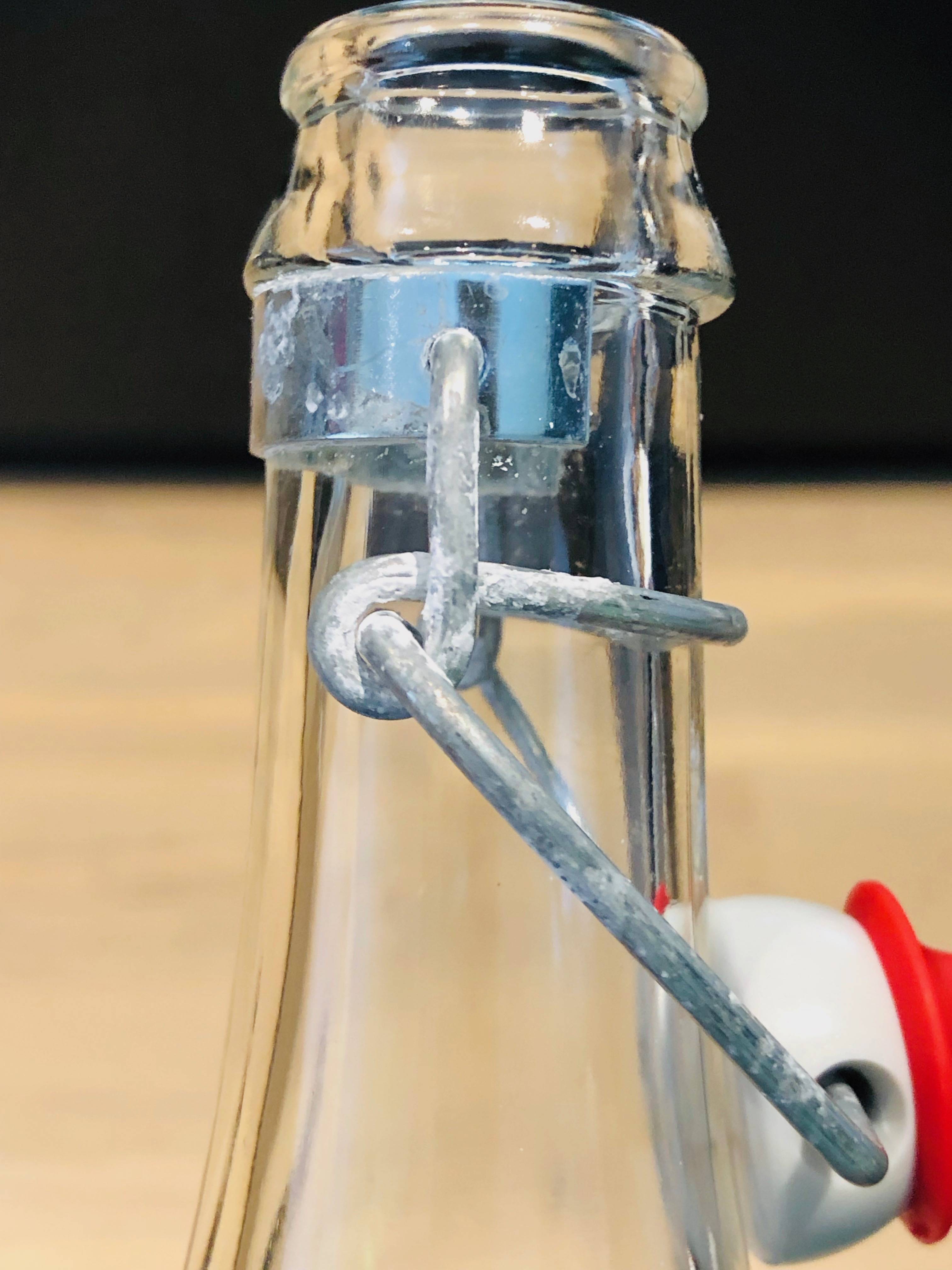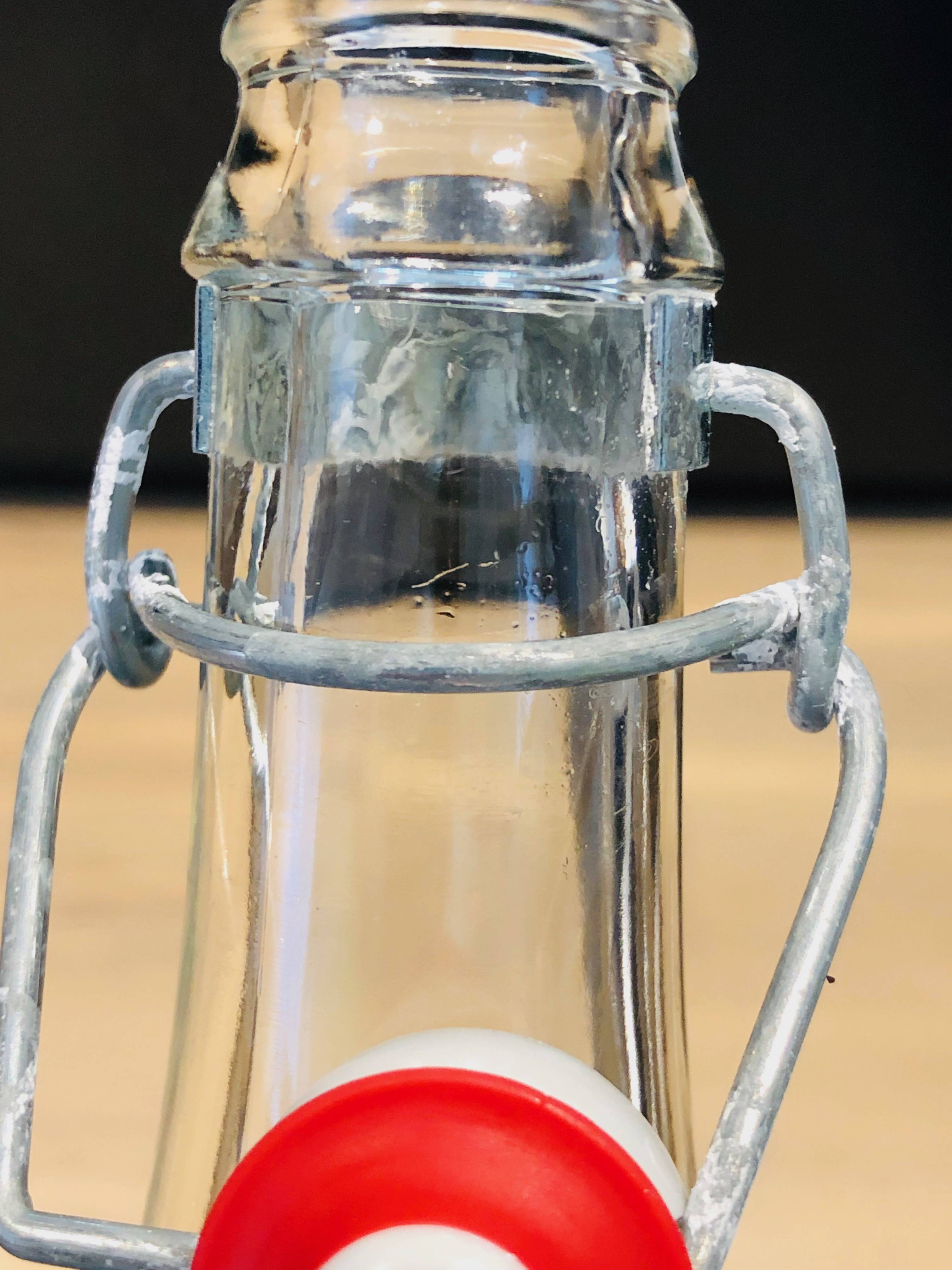In a home brewing project, I use washing soda (Na2CO3) to remove labels and glue from previously used bottles. In doing this, my flip-top bottles (which have a stainless steel flip top arm) often get unruly buildup of residual soda, which tarnishes and blemishes the steel. Is there a chemical mixture I can use to reverse this process and return the steel to a near-new appearance?
Here are a couple of photos of the bottles and buildup: the left shows a typical amount of residue; the right shows my attempt to wipe it clean with white vinegar (which partially works, but is still blemished).


